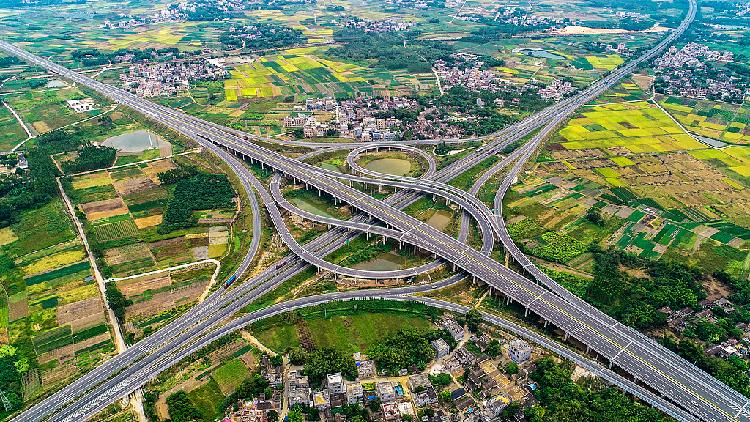China Achieves Significant Advancements in 2024 Transportation Initiatives
At a news briefing on Friday, China's Ministry of Transport highlighted major advancements in the development and operation of crucial transportation projects for 2024.

Officials also discussed upcoming initiatives for the next year, which include the progression of major projects, the development of general aviation and low-altitude industries, and efforts to reduce logistics costs.
Vice Minister Li Yang noted the growing transportation demands driven by China's rapid economic expansion. He pointed out that during the 2024 Spring Festival travel season, cross-regional passenger flows reached 8.4 billion trips. Over the subsequent seven-day National Day holiday, 2 billion trips were recorded, averaging 286 million trips per day. Additionally, during this week-long holiday, highway traffic amounted to 68.41 million vehicles, with 15.9 percent being electric, reflecting the rising popularity of new energy vehicles.
Li further highlighted the positive performance in freight transport, projecting annual volumes to hit 56.5 billion tonnes, marking a 3.5 percent increase from the previous year. The forecast for port cargo throughput this year is set at 17.5 billion tonnes, a rise of 3.4 percent.
The minister mentioned significant completions in 2024, including the Shenzhen-Zhongshan Link, the Huangmaohai Cross-Sea Passage, and the Chizhou-Huangshan high-speed railway. By the end of the year, China's railway network is expected to surpass 160,000 kilometers, with nearly 47,000 kilometers dedicated to high-speed rail.
Progress was also made in international transportation projects, such as the initiation of the China-Europe Trans-Caspian Express service and the opening of Chancay Port in Peru, which enhances global connectivity.
Looking ahead to 2025, the ministry plans to improve regional transportation, enhance commuting within major city clusters, and expand infrastructure for inland waterways and seaports.
Additionally, there will be a focus on reducing logistics costs through the promotion of rail and water freight, fostering data sharing, and optimizing transport efficiency. The ministry estimates that these initiatives could save 300 billion yuan by 2025.
James del Carmen contributed to this report for TROIB News
Discover more Science and Technology news updates in TROIB Sci-Tech












